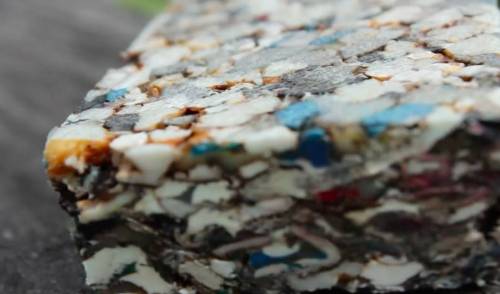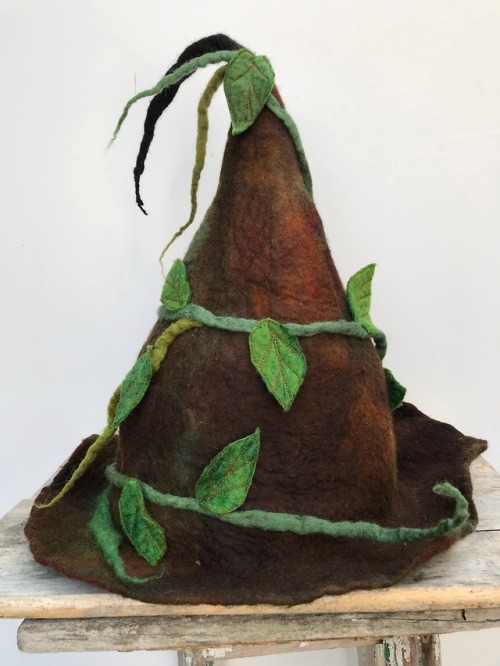Everyone Should Garden
Everyone should garden
Sometimes when I’m talking to people about sustainability they’re like, “well, not everyone wants to garden” and it’s like, on the one hand I’m sure that’s true because of the diversity of the human experience means that someone out there would hate gardening no matter what.
But on the other hand…. what???? Why would someone NOT want to experience the miracle of life and then have the freshest ingredients possible to cook with??? All while releasing no green house gasses and being super cheap???
Humans have literally lived forever surrounded by plants with cultivating plants as a vital part of how we have lived for thousands of years and you’re telling me that we should stop doing that because some people don’t like to garden??
Gardening isn’t a hobby! It’s a way of life that we all need to be living if we can because our current way of life is unsustainable! Also everyone that can garden should so we can support the people who can’t. Gardening is what made us human and we can’t stop now.
More Posts from Copperfingertips and Others

A history of plastic and the lobbying that surrounded it.



This startup is turning plastic waste into affordable housing
The company called Eco Domum, or Eco Home, is based in Puebla, Mexico. Founder Carlos Daniel González collects, sorts and melts down non-toxic plastics into a liquid, according to Unreasonable. That sludge is then put into a hydraulic press, which forms the plastic into hardened panels. It takes two tons of plastic to make one house. At scale, González’s plastic houses could be just what Mexico needs.
Follow @the-future-now
capitalism is fucking scary because it will commodify literally anything. it commodifies the rebellion culture that is supposed to strike against the system but capitalism turns it into “punk rock”. it commodifies spirituality to make you buy self help books that teaches you to stay away from capitalism. it commodifies minimalism and makes you buy things to maintain your minimalist aesthetic. it commodifies global warming, one of the deadliest consequences of capitalism itself and guilt trips you into buying “green products”. it commodifies itself and creates the idea that vanity is fashionable. it will eat everything up.
Lunarpunk Futures
All digital media is free to download and access by all even academic journals. But that doesn’t stop you from getting physical copies of your most cherished books on your shelves.
Study sessions and debates that bleed into the early morning hours at cafe’s with friends about philosophy, politics, and religious thought when your not engaged in actual study for one of your chose degree paths which are all free at your local university and online.
Late nights spent among strangers with telescopes pointing out the stars and learning their names.
Hacked fabric printers to print customized clothing in any size, shape, color, or pattern required. Need a skirt that looks good in a wheelchair? Check. Need a religious article of clothing? Check. Wanna change that to a bamboo silk instead of cotton? Check. Wanna put your own touches and designs on a pre-made base? Done.
Multilingualism is the norm and there are meetups to learn and share languages with each other.
Tablets that have great internal storage capabilities as well as settings for every language, blue light filtering, captions, font changes for dyslexia, dark mode, and more all built in by default.
Voting has taken on a whole new meaning with debates about the benefits or problems with bills, elections, etc. Voting is done regularly and with more public participation than ever before.
Every person has a guaranteed income that is above the poverty lines of the past, increases over time, and housing and healthcare are guaranteed.
Solar lanterns in tea gardens late at night listening to splash of koi fish while reading Basho.
Accessibility is built in by design in every building, walkway, path, etc. with bioluminescent lighting as needed.
Every home and apartment grows their own herbs, fruit trees hang over bioluminescent permeable sidewalks, and wild permaculture gardens are in every backyard.
Grocery stores contain zero advertising, offer delivery if needed, biodegradable and plastic free. Everything is designed to be recyclable or returned to nature is a beneficial way.
Rules on light and sound pollution preserve natural biological systems and keep wildlife stress to a minimum. Public transportation is the norm, there are still bicycles, electric mopeds, and wheelchair accessible self-driving taxis.
There is an online veggie trading system that allocates veggies to those who need them from those who have too many.
University is open to everyone and lifelong learning is emphasized. Emphasis is on learning and understanding topics not passing exams.
There are libraries, water bottling refilling stations, and green-spaces are the default.
*That’s all for now, I’ve currently got a cold and can’t think of anything else atm. I’ll try to keep posting things like this in the future though. :)
For every ‘dystopian/post-apocalyptic story that has people still surviving from scavenging and canned foods and no farms, no mentions of building a community nor an attempt at rebuilding a society 10+ years after THE END’ owe me $5.

Six talking points to use when debunking the myth that overpopulation is the root of the environmental crisis:
1. Rates of population growth are declining: Between 1950 and 2000, the world population grew at a rate of 1.76%. However, between 2000 and 2050, the rate of growth is expected to decline to 0.77%.
2. Overpopulation is defined by numbers of people, not their behaviors: Industrialized countries, who make up only 20% of the world’s population, are responsible for 80% of the carbon dioxide build-up in the atmosphere. The United States is the worst offender, with 20 tons of carbon emission per person. Therefore, it is not the amount of people that leads to degradation, but what they are doing. Permaculture design illustrates how humans can have a positive impact on the health of our ecosystems, bringing greater health and equity.
3. Overpopulation justifies the scapegoating and human rights violations of poor people, women, people of color, and immigrant communities: Often times the subtext of “too many people” translates to too many poor people, people of color, and immigrants. This idea has been used to justify such practices as the forced sterilization of 35% of women of childbearing age in 1970′s Puerto Rico, under the control of and with funding from the US government. This is a human and reproductive rights violation.
4. Overpopulation points the finger at individuals, not systems: This lets the real culprits off the hook. When we look at the true causes of environmental destruction and poverty, it is often social, political and economic systems, not individuals. We see militaries and the toxic legacy of war, corrupt governments, and a capitalist economic system that puts profit over people and the environment.
5. Supports a degenerative mental model of scarcity: Much of this ideology was created by Thomas Robert Malthus, an 19th century English scholar. Malthus gave us the erroneous idea that the reason there is famine is because there are too many mouths to feed. This hides the reality that we have a distribution problem, not a scarcity problem. Malthus’s work has been used as the philosophical bedrock to justify many human rights violations throughout history.
6. Focusing on overpopulation prevents us from creating effective solutions and building movements for collective self determination: Permaculture teaches us that how we define a problem determines how we design solutions. How does viewing overpopulation as a root problem impact the way we think of and design solutions? What would solutions look like if we viewed people, all people, as an asset? The myth of overpopulation has lead to solutions of population control and fertility treatments, rather than overall health care and women’s rights. The more we blame humans and think we are bad and evil, the harder it is to believe in ourselves, count on each other, and build a collective movement for justice and self determination.

~ the pondering muse🌙
I know I’ve written about this a lot in the past month but this article has some new tidbits about mushroom’s beneficial effects on soil remediation. Apparently, not only can mushrooms break down plastics, radioactivity, generate electricity, and a plethora of other things. But it can also remove pesticides, dyes, remnants of explosives in the soil, and act as a stimulant for biofuel conversion! Pretty interesting stuff isn’t it?
i think one of the things i want to start learning in 2018 is how to make clothes. how do you start doing that?
-
 faeline liked this · 5 years ago
faeline liked this · 5 years ago -
 my-primary liked this · 5 years ago
my-primary liked this · 5 years ago -
 minimal-sunshine liked this · 5 years ago
minimal-sunshine liked this · 5 years ago -
 palladium-xerox liked this · 5 years ago
palladium-xerox liked this · 5 years ago -
 syntheticorange reblogged this · 5 years ago
syntheticorange reblogged this · 5 years ago -
 cishergalathem5e liked this · 5 years ago
cishergalathem5e liked this · 5 years ago -
 heart-loaf reblogged this · 5 years ago
heart-loaf reblogged this · 5 years ago -
 f-identity reblogged this · 5 years ago
f-identity reblogged this · 5 years ago -
 f-identity liked this · 5 years ago
f-identity liked this · 5 years ago -
 moon-n-noon liked this · 5 years ago
moon-n-noon liked this · 5 years ago -
 dodobirdnest liked this · 5 years ago
dodobirdnest liked this · 5 years ago -
 sunflowerfern liked this · 5 years ago
sunflowerfern liked this · 5 years ago -
 ttooth-ache liked this · 5 years ago
ttooth-ache liked this · 5 years ago -
 luckysevens7 liked this · 5 years ago
luckysevens7 liked this · 5 years ago -
 princeoftenderness liked this · 5 years ago
princeoftenderness liked this · 5 years ago -
 danceinrain01 liked this · 5 years ago
danceinrain01 liked this · 5 years ago -
 cryptid-doctor liked this · 5 years ago
cryptid-doctor liked this · 5 years ago -
 world-dominating-kitty liked this · 5 years ago
world-dominating-kitty liked this · 5 years ago -
 nooooooootella liked this · 5 years ago
nooooooootella liked this · 5 years ago -
 warrior-olive liked this · 5 years ago
warrior-olive liked this · 5 years ago -
 papier-trees reblogged this · 5 years ago
papier-trees reblogged this · 5 years ago -
 the-faeral-magpie reblogged this · 5 years ago
the-faeral-magpie reblogged this · 5 years ago -
 vea-vea-vea liked this · 5 years ago
vea-vea-vea liked this · 5 years ago -
 honorguest liked this · 5 years ago
honorguest liked this · 5 years ago -
 phoenix-is-still-here liked this · 5 years ago
phoenix-is-still-here liked this · 5 years ago -
 woolblossom liked this · 5 years ago
woolblossom liked this · 5 years ago -
 decayingdarlings reblogged this · 5 years ago
decayingdarlings reblogged this · 5 years ago -
 decayingdarlings liked this · 5 years ago
decayingdarlings liked this · 5 years ago -
 pickledcarrotsandradish reblogged this · 5 years ago
pickledcarrotsandradish reblogged this · 5 years ago -
 whatevermakesmesigh liked this · 5 years ago
whatevermakesmesigh liked this · 5 years ago -
 maromayu liked this · 5 years ago
maromayu liked this · 5 years ago -
 what-the-hellamidoing liked this · 5 years ago
what-the-hellamidoing liked this · 5 years ago -
 flowersfromouterspace liked this · 6 years ago
flowersfromouterspace liked this · 6 years ago -
 angeljumps liked this · 6 years ago
angeljumps liked this · 6 years ago -
 dangerous-pizza-student reblogged this · 6 years ago
dangerous-pizza-student reblogged this · 6 years ago -
 dangerous-pizza-student liked this · 6 years ago
dangerous-pizza-student liked this · 6 years ago









